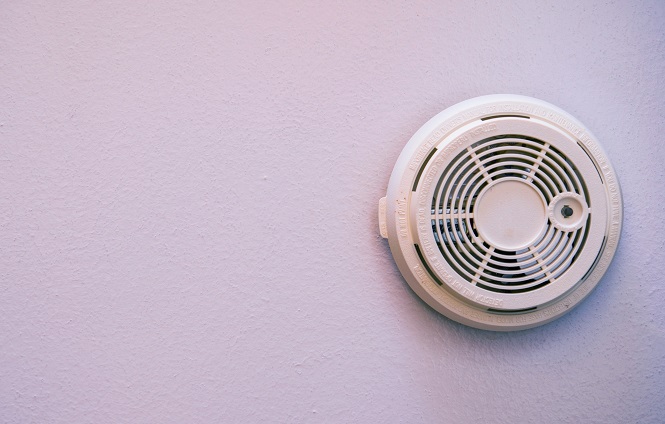Smoke Detector Disposal: A Responsible Guide for 2024

Ensuring the safety of your home while being environmentally responsible is a balance every homeowner should strive for. One often overlooked aspect of this balance is the proper disposal of smoke detectors. With 2024 bringing new regulations and safety standards, understanding how to responsibly dispose of your old smoke detectors has never been more crucial. In this guide, we will explore the significance of smoke detector disposal, why 2024 is a pivotal year, and how you can contribute to a safer and greener community by disposing of these devices properly.
The Importance of Proper Smoke Detector Disposal
Smoke detectors are essential devices that provide early warnings in the event of a fire, potentially saving lives. However, like any electronic device, they have a limited lifespan, typically around 10 years. When they reach the end of their life, it’s important to dispose of them responsibly to prevent environmental harm and ensure safety.
Improper disposal of smoke detectors can lead to the release of harmful substances into the environment. Many smoke detectors contain small amounts of radioactive material, which, if not handled properly, can pose health risks. By disposing of smoke detectors correctly, you reduce these risks and contribute to a healthier environment. Being informed about proper disposal methods not only helps the planet but also aligns with legal compliance, as many areas have regulations regarding the disposal of electronic waste.
Responsibility towards the environment begins at home. Understanding how to manage household waste, including smoke detectors, empowers you to make choices that positively impact your community and the wider world. This guide will help you turn this responsibility into action.
Why 2024 Is a Critical Year for Updating Smoke Detectors
The year 2024 marks a significant turning point for smoke detector technology and safety regulations. New standards are being implemented that affect both the functionality of smoke detectors and their disposal requirements. These changes mean that many homeowners will need to replace their existing smoke detectors with newer models that comply with updated safety standards.
Advancements in technology have led to more sensitive and reliable smoke detectors. These devices not only detect smoke more efficiently but also minimize false alarms, making them more effective in protecting your home. Upgrading to these new models ensures compliance with safety regulations and enhances your home’s safety.
Additionally, 2024 brings stricter regulations on the disposal of smoke detectors. These regulations aim to prevent the environmental impact of improper disposal by providing clear guidelines on how to recycle or dispose of components safely. Staying informed about these changes and acting accordingly is vital for maintaining both personal safety and environmental integrity.
A Comprehensive Guide on How to Dispose of Smoke Detectors Responsibly
Disposing of smoke detectors responsibly involves understanding the materials they contain and the appropriate methods for disposal. Here’s a comprehensive guide to help you through the process:
- Identify the Type of Smoke Detector
Most smoke detectors fall into two categories: ionization and photoelectric. Ionization detectors contain a small amount of radioactive material, while photoelectric detectors do not. Knowing which type you have is crucial, as it determines the disposal method.
- Consult Local Regulations and Programs
Different regions have varying regulations and programs for electronic waste disposal. Check with your local waste management authority to find out the recommended disposal methods for smoke detectors. Some areas may have specific drop-off locations or recycling programs.
- Contact the Manufacturer
Many manufacturers offer take-back programs where you can return old smoke detectors for safe disposal. Check the manufacturer’s website or contact their customer service for more information.
- Recycling Options
If available, use recycling programs that accept electronic waste. These programs ensure that valuable materials are recovered, and hazardous substances are disposed of safely.
- Proper Packaging
When transporting old smoke detectors, ensure they are securely packaged to prevent damage and potential exposure to hazardous materials.
- Avoid Throwing in the Trash
Never dispose of smoke detectors in your regular trash bin. Doing so can lead to environmental contamination and is often against local regulations.
By following these steps, you not only comply with regulations but also play a role in protecting the environment and public health.
The Environmental Impact of Improper Smoke Detector Disposal
Improper disposal of smoke detectors poses significant environmental risks. Ionization smoke detectors contain americium-241, a radioactive element. While the amount present in each detector is extremely small and generally safe when contained, it can become hazardous if released into the environment.
When smoke detectors are thrown away with regular garbage, they often end up in landfills. Over time, the radioactive material can leach into the soil and water, posing risks to wildlife and humans. Furthermore, the plastic casing of smoke detectors contributes to the growing issue of plastic pollution.
By disposing of smoke detectors properly, you help prevent the release of toxic substances and reduce electronic waste, which is one of the fastest-growing waste streams globally. Responsible disposal contributes to a healthier planet and set an example for others in your community to follow.
Insights on the Latest Smoke Detector Technologies and Their Impact on Safety and the Environment
Advancements in smoke detector technology are enhancing safety and reducing environmental impact. Modern smoke detectors are designed to be more sensitive and reliable, with features such as dual-sensor technology that combines ionization and photoelectric detection methods. This dual approach ensures more accurate detection of various types of fires, reducing the likelihood of false alarms.
Additionally, new smoke detectors are being developed with eco-friendly materials and designs that facilitate easier recycling and disposal. Some manufacturers are focusing on creating devices with reduced radioactive content or using alternative technologies that eliminate the need for such materials altogether.
These innovations not only enhance home safety but also address environmental concerns associated with smoke detector disposal. By staying informed about the latest technologies and choosing eco-friendly options, you contribute to both personal safety and environmental sustainability.
Tips for Staying on Top of Smoke Detector Maintenance and Disposal in the Future
Maintaining and disposing of smoke detectors responsibly requires ongoing attention. Here are some tips to help you stay on top of your responsibilities:
- Regular Maintenance Checks
Test your smoke detectors monthly to ensure they are functioning correctly. Replace batteries as needed and clean the devices to prevent dust buildup, which can affect their performance.
- Keep Track of Expiry Dates
Smoke detectors typically have a lifespan of 10 years. Keep track of the installation dates and plan for replacements as they near the end of their lifecycle.
- Stay Informed About Regulations
Regulations regarding smoke detector disposal can change. Stay informed about any updates to local laws and guidelines to ensure compliance.
- Educate Your Household
Share information about smoke detector maintenance and disposal with everyone in your household. This ensures collective responsibility and increases the likelihood of compliance.
- Consider Sustainable Options
When purchasing new smoke detectors, consider models that prioritize sustainability, such as those made with eco-friendly materials or that offer take-back programs.
By incorporating these practices into your routine, you can effectively manage smoke detectors in your home, contributing to both safety and environmental health.
Conclusion
Smoke detector disposal is an important aspect of home safety and environmental responsibility. With new regulations and technologies emerging in 2024, it is crucial for homeowners, environmentalists, and safety advocates to stay informed and take proactive steps toward responsible management.
By understanding the importance of proper disposal, familiarizing yourself with the latest technologies, and incorporating maintenance practices into your routine, you can contribute to a safer and more sustainable future. Share this guide with your community to raise awareness and encourage others to join in the effort to protect our environment and enhance home safety.
Together, we can make a difference by ensuring that our actions today lead to a safer, greener world for generations to come.







